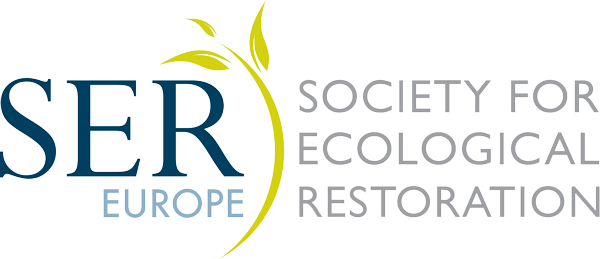Crash courses on
August 25 & August 31
1. Crash course: Soil and Water Bioengineering as Nature-Based Solution. An introduction
Organizer(s): Paola Sangalli, EFIB/AEIP; Gianluigi Pirrera, EFIB/AIPIN
Date: 25 August 2024
Time: morning indoors (9:00-13:00), afternoon outside (14:00-16:00)
Location: Oecologicum (Liivi 2, Tartu - GOOGLE MAPS) and outdoors
Max number of participants: 25
Fee: 50 EUR
Soil and Water Bioengineering is a specific discipline that combines technology and biology in which native plants and plant communities are used as living building material to solve erosion and conservation problems, contributing to the regeneration of degraded ecosystems due to natural or anthropic causes, regenerating dynamics of ecological and geomorphological processes and to the recovery of Biodiversity. It is a nature-based solution with applications in the restoration of wetlands, grasslands, forests, rivers, agroecosystems, and urban and marine ecosystems.
Although these techniques have a huge potential combined with other techniques of ecological restoration, there is still a deficit in knowledge and training.
2. Crash course: Direct Seed Harvest for Ecological Restoration of Grasslands
Organizer(s): Daniel Slodowicz, Ö+L GmbH / HoloSem Switzerland; Aure Durbecq, Avignon University
Date: 31 August 2024
Location: Oecologicum (Liivi 2, Tartu - GOOGLE MAPS)
Time: 9:00-14:30
Max number of participants: 50
Fee: 30 EUR
Explore the vital process of direct seed harvest for restoring grasslands in this comprehensive course. Covering topics from donor site selection to post-harvest seed processing, participants will gain insights into various harvesting techniques and explore marketing and regulatory aspects. Led by Daniel Slodowicz, a seasoned expert with both scientific and practical experience, this course bridges the gap between science and practice. Ideal for practitioners, researchers, and policymakers involved or interested in grassland restoration by propagules transfer, with botanical knowledge recommended but not mandatory.
3. Crash course: Restoration of transition zones between ecosystems: example of lagg zone / transition zone in bog landscapes. Practical views and information (techniques) needed for planning and assessing results
Organizer(s): Agata Klimkowska, Wetlands International
Date: 31 August & 1 September 2024
Time: Buses leave Tartu at 8:15-8:30 on August 31.
Location: Meet at the parking lot on Magistri Street (https://maps.app.goo.gl/eeVV6dRm2KQ4PmMb7). Transportation will be provided.
Max number of participants: 19
Fee: 50 EUR
Restoration of wetlands, and peatlands in particular, is challenging and depends on the degree of degradation of the landscapes where the wetlands exist(ed). We focus on transition zones between different types of ecosystems, such as the lagg zones at the edges of bogs, where the gradients of abiotic conditions develop (wet to dry, mineral-poor to mineral-rich, acid to basic, oligotrophic to eutrophic, etc). These zones were the first to be destroyed and no longer exist or function and, in some cases, are not even recognisable any more in the landscapes. These zones are integral parts of peatbogs and often very rich in fauna and flora due to gradients in water levels, acidity, and water mineralisation. The restoration of these zones is important for biodiversity as well as for hydrological functioning of peatland (remnants).
Various types of information and interventions are needed for successful restoration process. We explore the information types needed and innovative information collection techniques (such as geo-radar, mapping the remaining peat depth), applying some of the approaches, and together develop a strategy for the restoration of a transition zone at a case study site not far from Tartu. Throughout the course, we explore different aspects related to the topic: hydrology, ecological processes and indicators, types and implementation of restoration interventions, engagement with the public, and involvement with local communities.
Our focus extends to transition zones in peatbogs, recognising that adequate attention is crucial to addressing various restoration challenges appropriately. Other examples of such zones include transition along water salinity gradient (coastal marshes), transition along a sediment gradient from clay to sand (coastal marshes), transition along the groundwater seepage quality (deep vs. shallow groundwater), etc.
- 31 Aug – ca. 8.30 AM leaving Tartu (spot to be communicated later) for a field day at Tudu mire (ca. 1,5h drive , then field visits and fieldwork, lunch provided in the field)
- Stay overnight by the field site (included in the course fee)
- The networking dinner and sauna. Sauna is not obligatory (included in the course fee)
- 1 Sept - course activities and training sessions (partly indoors) (lunch)
- Ending the course around 14.00
- There will be an opportunity to take a train straight to Tallinn, this train stops also very close by the airport (to be there about 17.00), or go back to Tartu.
- Rubber boots and preferably the long ones (to your waist) are necessary (otherwise you can not do any fieldwork)
- Good rain gear is necessary (we stay all day in the field)
- Insect repellent and accepting some discomfort is necessary, bogs are full of life
- The fee includes overnight and simple breakfast. The fee is not refundable.
- The overnight is in small farm guest house in 2-persons rooms and participants agree to share the rooms (possibly with participants of the same gender)
- You are yourself responsible for your personal medicines and consideration of your condition. We expect some walking through difficult terrain and a long day in the field.
- Swimming suit is advisable, there may be time to take a dip in the bog lake
- Kindly submit any diet restrictions during registration






